Artificial intelligence is now a reality to be experienced rather than merely a far-off dream. On October 13-17, coinciding with the GITEX GLOBAL 2025, the largest AI and technology event in the world, world leaders descend on the Dubai World Trade Centre to determine what it exactly entails to be an AI-native society.
This year’s edition hosts three major players, OpenAI, G42, and Microsoft, in revolutionary debates on how nations can integrate their early AI experiments into established national systems. Innovators, such as Sam Altman, CEO of OpenAI, and Peng Xiao, Group CEO of G42, are likely to play a significant role in shaping the next generation of intelligence through the use of data, infrastructure, and the readiness of people.
With the entire globe transitioning into full-scale AI adoption and implementing country-scale strategies, GITEX GLOBAL 2025 will be a landmark event, as states, investors, and innovators convene to develop the building blocks of smart economies, smarter governance, and connected communities fueled by AI.
From Early Adoption to AI-Native Societies
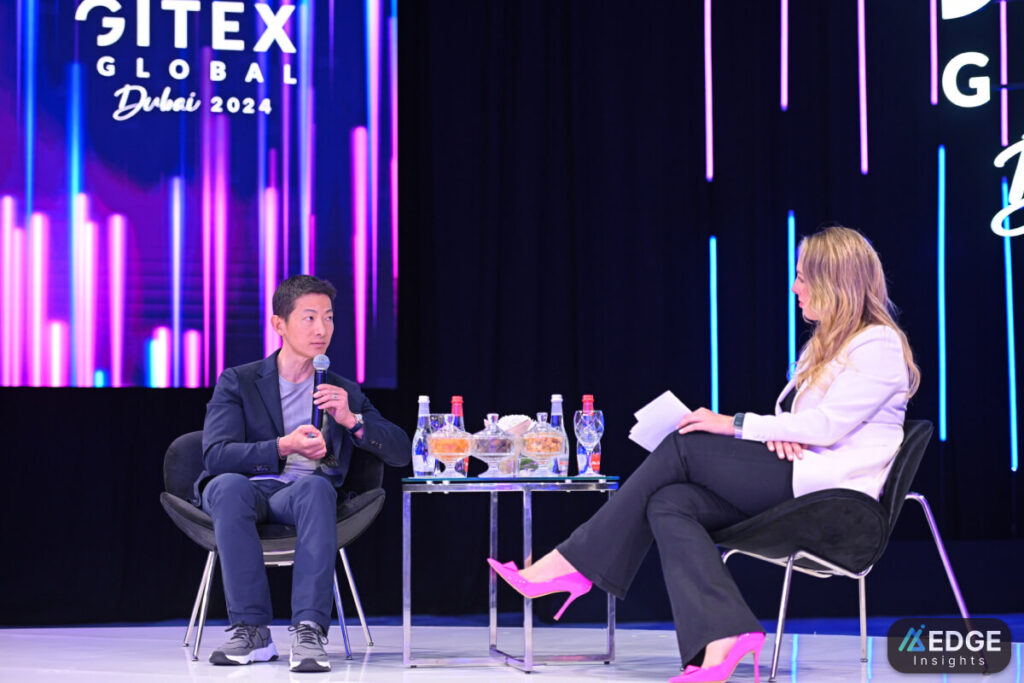
Artificial intelligence had long been viewed as an add-on – a precisely defined set of tools to create an automatising process or accelerate work. In the year 2025, however, the emphasis is not on AI usage but on AI construction. The concept behind an AI-nativity society refers to the state of a country in which all the systems are intelligent, including but not limited to governmental services and education, industry, and national infrastructure.
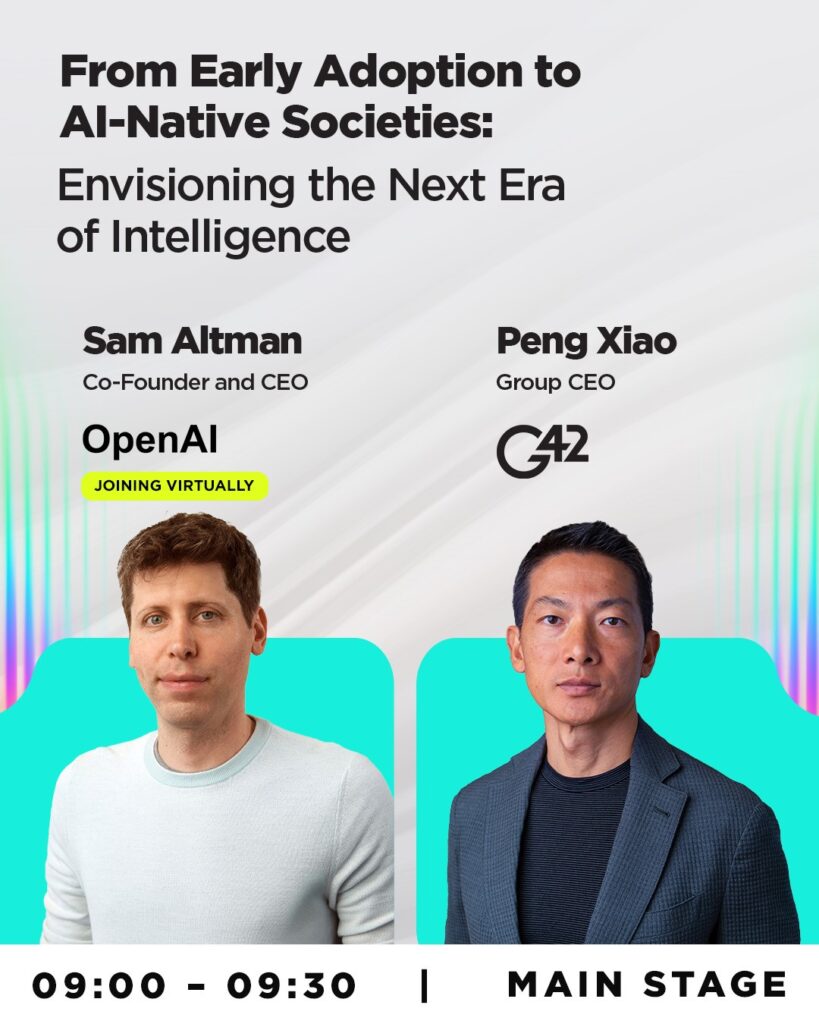
This vision will be front and centre at GITEX GLOBAL 2025. Sam Altman, CEO of OpenAI, and Peng Xiao, CEO of G42, are leading the debate on how countries can progress from merely experimenting with AI to integrating it into their daily lives. Their premise is very straightforward: the new wave of expansion relies on nations seeing AI as the part and parcel of the national expansion, not merely a technological fad.
The United Arab Emirates has emerged as one of the most successful stories in this shift. The UAE is demonstrating that by incorporating AI into public service, governance, and learning, societies can become more effective and progressive.
Going AI native does not limit itself to algorithm deployment. It is all about having institutions, laws, and people who think to work well with intelligent systems in a responsible manner. With GITEX 2025 dominating the world stage, any country willing to invest in data integration, governance, and human capital will spearhead the world into a new intelligent phase.
The Backbone of Intelligence: How Nations Are Building AI Power Grids

Any AI-native society starts with a solid base – infrastructure. Just as the industrial age was supported by electricity, so are data centers and computing power, now supporting the intelligence era. G42, OpenAI, and Microsoft, among others, have been at the GITEX GLOBAL 2025 talking about how worldwide collaborations can develop this digital backbone.
The most important one is the UAE-US 5GW AI Campus, the biggest AI infrastructure project outside the U.S., organized by Core42 and the US-UAE Business Council. It represents the way countries perceive information and calculate it as domestic resources that drive innovation, research, and government services.
Firms such as Cisco, Oracle, Khazna Data Centres, and Cerebras are also supporting another idea: the Global Intelligence Grid, a network mode for connecting countries and industries through a shared intelligence operation.
Nevertheless, leaders warn that growth should remain sustainable. As 92% of businesses raise AI investments faster in 2025, the energy consumption/scalability balance will be a major concern. As exhibited by GITEX 2025, the future of AI requires not only innovation but also the creation of suitable infrastructure to support its operational efforts.
The Power Play: How AI Is Reshaping Global Economies and Politics

Artificial intelligence is no longer merely a technology: it is a new source of economic and political power. During the GITEX GLOBAL 2025, leaders discussed how countries are employing AI to dominate their economies and global markets.
Investment has also become a digital supremacy race as identified by UBS, which estimates AI funding to hit 375 billion in 2025. On the frontline is the UAE, where Mubadala’s portfolio of 302 billion is driving the AI revolution in major industries.
One of the highlights was the discussion between Victor Gao of China and Dr. Jorg Goschin of German based KfW Capitals, focusing on how capital has become a tool of technological might. According to several ministers, such as Omar Sultan Al Olama and Evan Solomon, AI is creating a new form of intelligence super cycle, where nations are leveraging technology to enhance resilience and economic power.
Essentially, AI is emerging as a national infrastructure, and those countries that invest early are becoming leaders of the world tomorrow.
The Next Frontier — Quantum, Cybersecurity, and Smarter AI
With the expansion of artificial intelligence throughout the industries, new problems and new opportunities are surfacing on the frontline. At GITEX GLOBAL 2025, the best technology trends on the planet, including quantum computing, cybersecurity, and model forms of AI, were discussed in the next phase of digital transformation.
Microsoft’s Zulfi Alam and Siemens’ Peter Koerte identified the need to develop a quantum-ready workforce, in which employers, colleges, and universities partner to educate the new generation of high-performance computing power. They conveyed a very simple sentiment: without an able man, there was to be no innovation.
Simultaneously, Ramin Hasani, the CEO of Liquid AI, unveiled liquid neural networks, a fresh form of AI that is based on biological principles. With these models, they can learn and improve at a higher rate, promising an intelligent and efficient AI system for industries worldwide.
However, with the current development of technology, so do the risks. According to the World Economic Forum 2025 Cybersecurity Report, the number of AI-based attacks increased by 58 percent in the last two years. Governments can secure digital economies by strengthening their policies and cross-border collaboration, as discussed by leaders such as Dr. Mohamed Al-Kuwaiti (UAE), Liisa-Ly Pakosta (Estonia), and Andre Molina (Brazil).
In quantum and cyber defense, the message of GITEX was consistent: the future of AI should be creative, smart, and secure.
Conclusion
GITEX GLOBAL 2025 will become one of the most memorable moments in the history of the world’s perception of artificial intelligence. What started as a handful of experiments has now become a movement worldwide to AI-native societies where intelligence is a cornerstone of the governing, the business, and everyday lives.
With OpenAI’s Sam Altman and G42’s Peng Xiao supporting other ventures in the world, such as Microsoft and additional innovators, this experience set one glaring realisation: AI is not only software anymore, but it is a national strategy. Countries investing today in infrastructure, data, and human capital are manifesting the smart economies of tomorrow.
The journey towards a smarter, safer, and more connected world, as revealed by the talks during GITEX, is already in progress. It is now time to make sure that this new AI-driven future is responsible, collaborative, and visionary.
FAQs
1. What is an AI-native society?
An AI-native society is a nation in which AI is an aspect of daily life, whether at school, hospitals, government, or businesses. It involves applying AI to make systems intelligent, quicker, and more interlinked.
2. Why is GITEX GLOBAL 2025 important?
The GITEX GLOBAL 2025 has become one of the largest global tech events. It unites leading corporations such as OpenAI, G42, and Microsoft to talk over how AI can determine the future of countries, economies, and industries.
3. What is the UAE–US 5GW AI Campus?
It is among the biggest AI initiatives beyond the United States, which was developed to deliver immense computing capabilities to research and development. It assists in developing more intelligent technologies and promotes the national AI objectives of the UAE.
4. How is AI changing the global economy?
AI is assisting nations to become efficient and competitive. It is generating new employment opportunities, reforming industries, and even altering the manner in which governments plan their economies and trade.

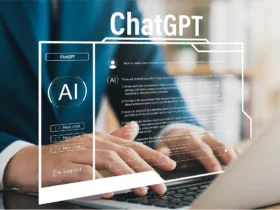

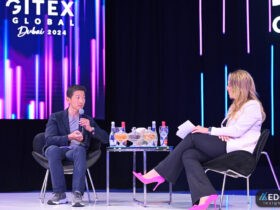
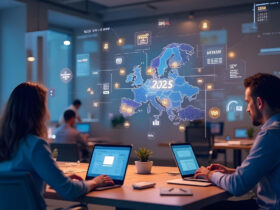
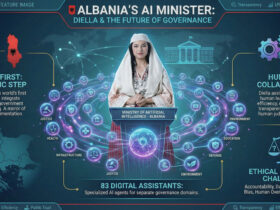
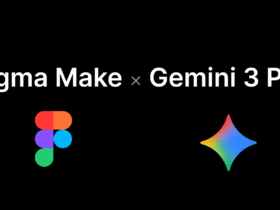
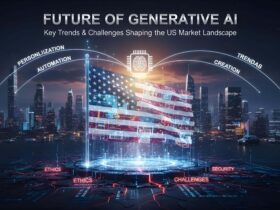
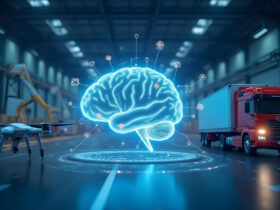
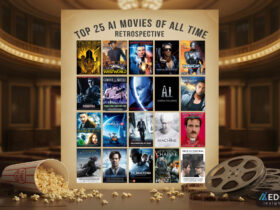
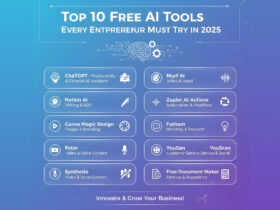
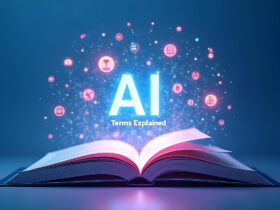
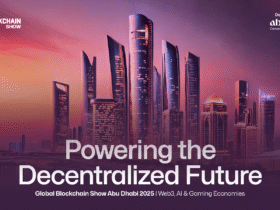
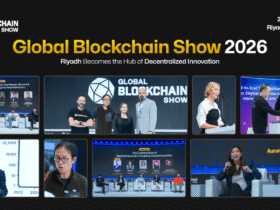

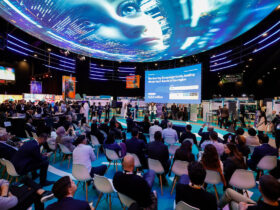
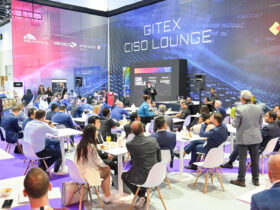
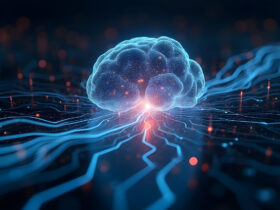
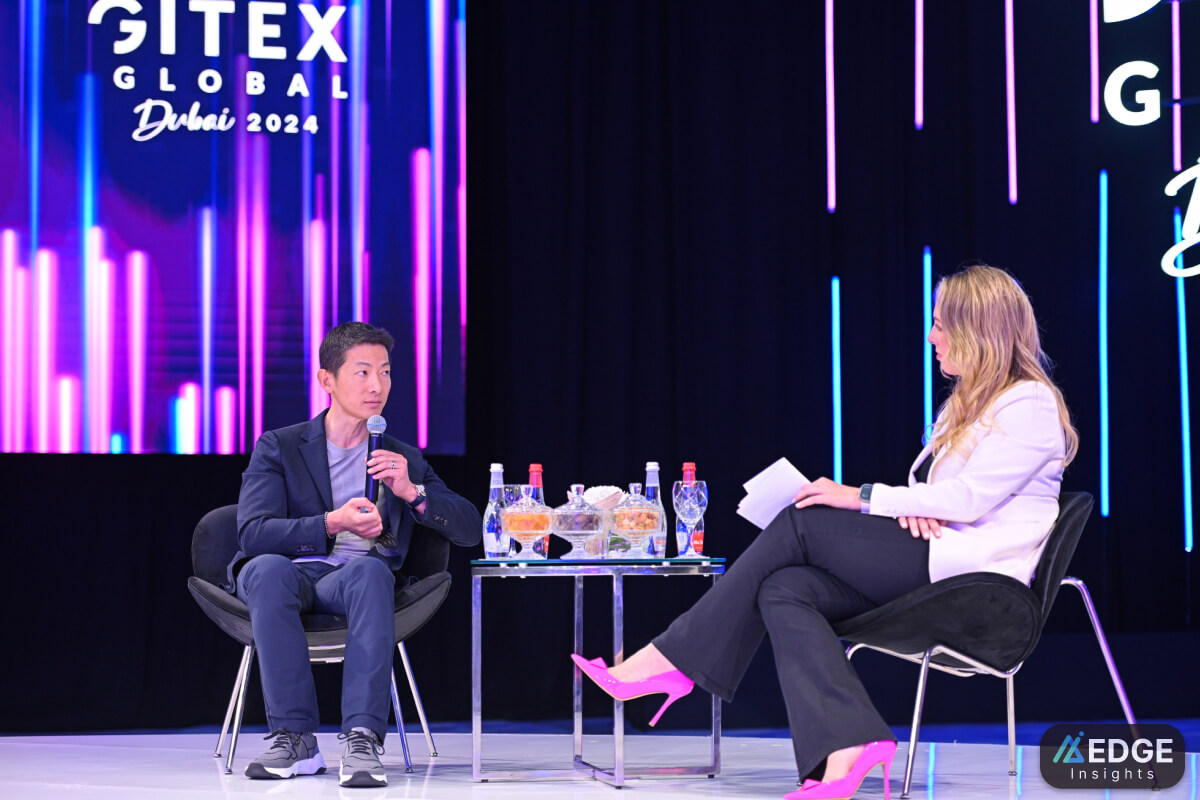
Leave a Reply